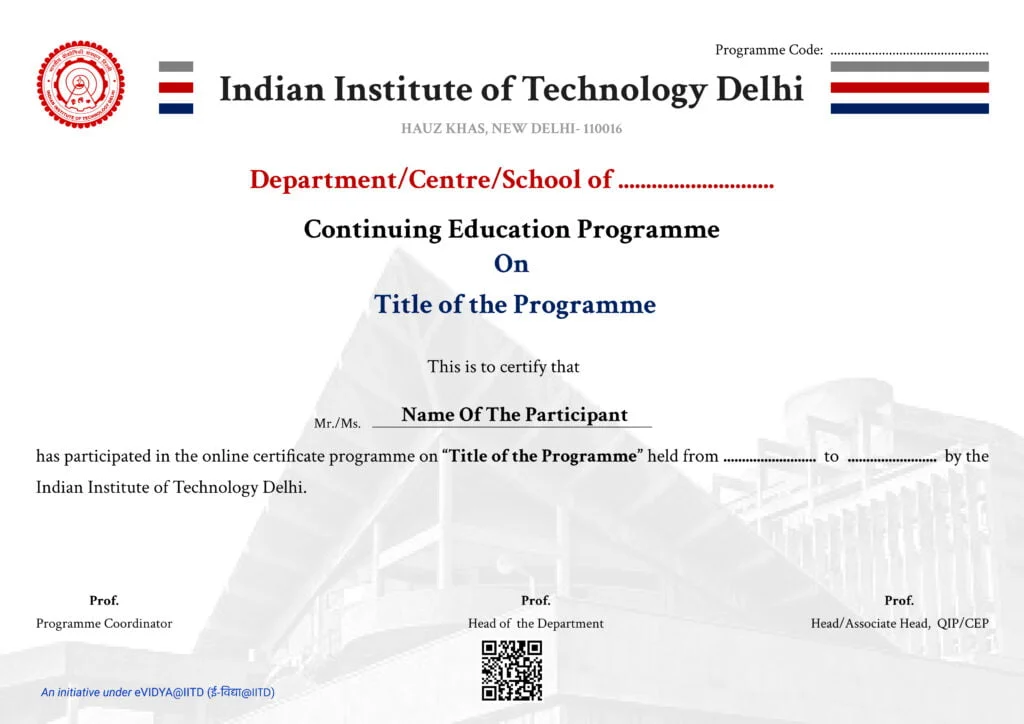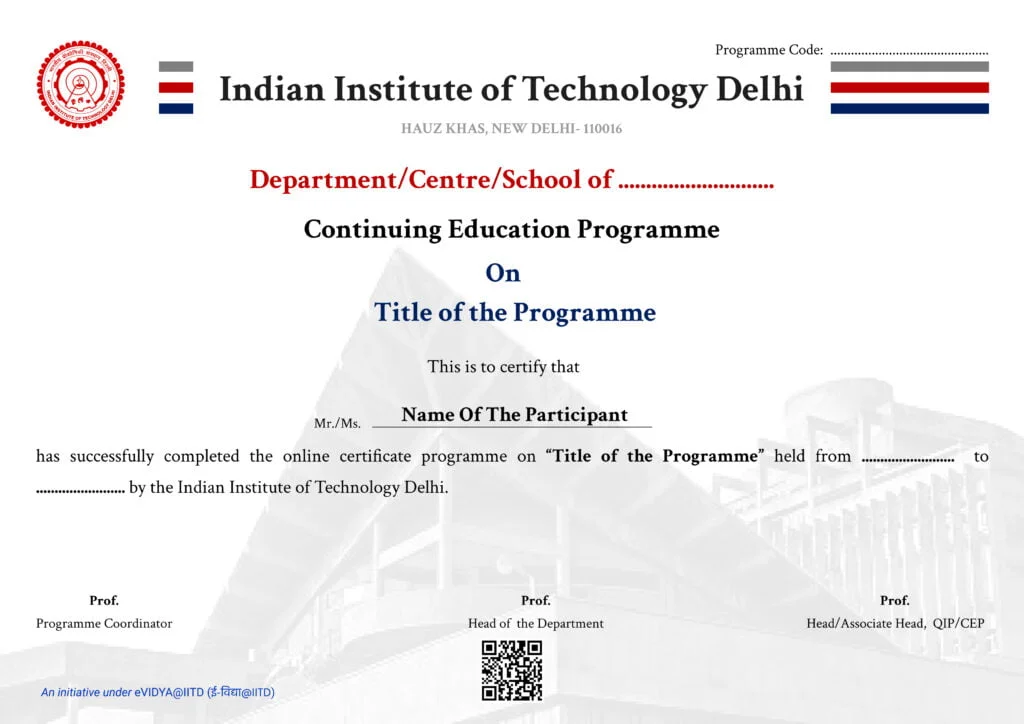Programme Overview
In today’s turbulent times, technology is constantly reshaping healthcare, industry 5.0 integrates human expertise with machine intelligence, heralding a new era of personalized and sustainable healthcare. Hone your prowess by pursuing the Executive Programme in Healthcare for Industry 5.0, offered by the CEP, IIT Delhi. Gain insights, skills, and strategies to navigate the evolving landscape of healthcare delivery, empowering you to lead innovation and drive positive change in this dynamic industry.

Certificate of Successful Completion from CEP, IIT Delhi

Live Interactive Sessions by IIT Delhi Faculty

2 Days Campus Immersion

Case Studies Driven Learning

Peer to Peer Networking Opportunities








Programme Content
Human Physiology and Healthcare Fundamentals (Human Biomechanics and Space Biomechanics)
Operations Management in Healthcare
Pharmaceuticals and Drug delivery
Big Data Analytics in Healthcare
Industry 4.0
Industry 5.0 for Healthcare
Corporate Responsibility in HealthcareWorld
Risk management and Regulatory approvals.
Note:This is an indicative list of course topics and is subject to change as per IIT Delhi’s discretion.
Admission Fee & Financing
Easy EMI Options Available
Pay in easy monthly installments with our EMI options. No more worrying about finances; start your learning journey today!



Complete Payment
Participants can make one-time payment easily using options such as:
Eligibility
- Bachelor's degree in Science or Engineering or Medical fields (MBBS/Pharmacy / Nursing/ BDS or equivalent degree) with atleast 50% marks in total or 5.0 CGPA.
- The selection is based on candidates' profiles.
- Assignments
- Live Online
- Projects
- Term Papers
- Minimum 50% of attendance is mandatory.
Know The Facilitators
Programme Certification
- You will be awarded a ‘Certificate of Successful Completion’, if you obtain 70% aggregate marks in the evaluation components and maintain a minimum attendance of 50% in lectures.
- Participants who are unable to score 70% marks in the evaluation will be eligible for the ‘Participation Certificate’ if they maintain a minimum attendance of 50% in lectures.
- The above e-certificate is for illustrative purposes only and the format of the certificate may be changed at the discretion of IIT Delhi.
- Only e-certificate will be provided and it will be issued by CEP, IIT Delhi.
- This programme is offered by the Centre for Biomedical Engineering (CBME).


Executive Programme in
Healthcare for Industry 5.0
Programme by CEP, IIT Delhi
Revolutionize healthcare with Industry 5.0. Join this interdisciplinary programme to harness technology's power for a sustainable future.
Apply Now








